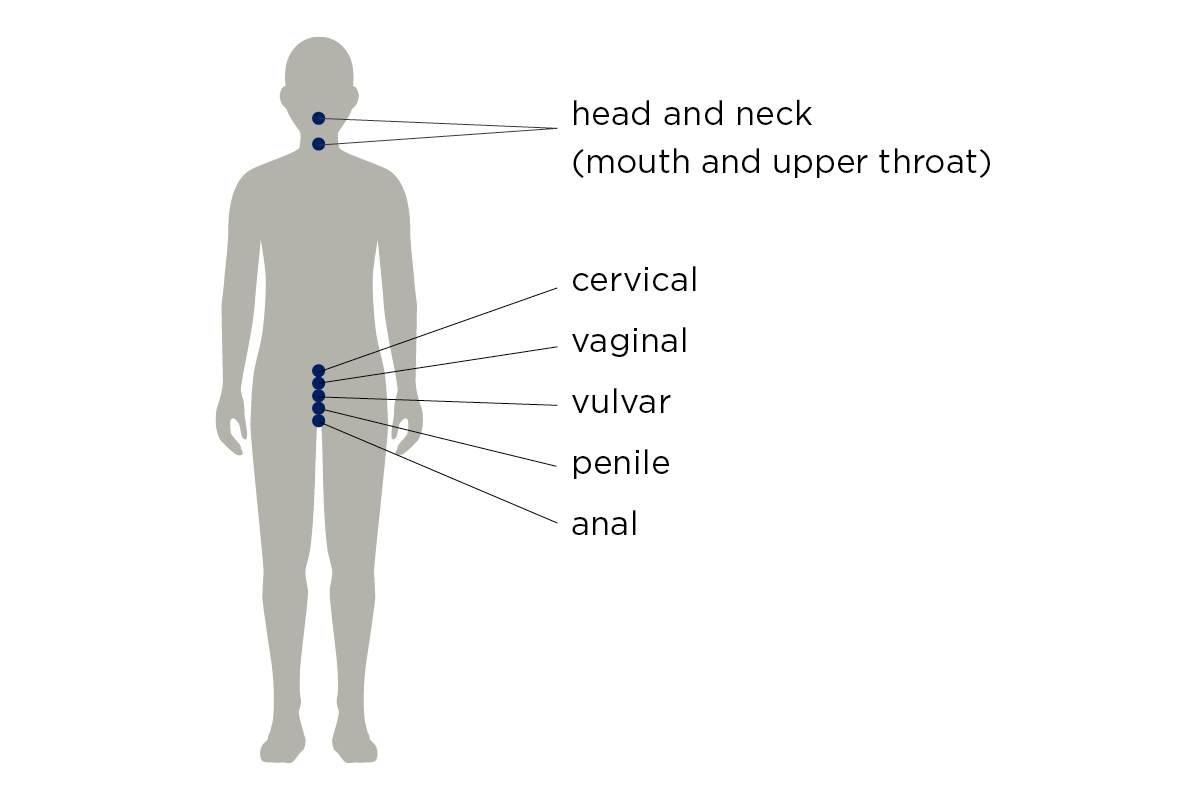
Human papillomavirus (HPV) and the cancers caused by the virus are everyone’s concern. Nearly 85% of adults between the ages of 18 and 65 will have at least one strain of HPV at some point in their life. For many people, the virus will go away on its own, or lead to a less serious problem like warts. But chronic HPV infection can cause several types of cancer, including cervical, anal, vaginal, and penile cancers, and cancers of the head and neck.
Memorial Sloan Kettering is recognized as a world leader in the prevention, diagnosis, and treatment of cancers related to HPV. On this page, you can learn more about HPV, the cancers it causes, and the HPV vaccine. You can also find resources to help protect yourself and your family from HPV-related cancers.
NYCDCC Welfare Fund partners with MSK to offer MSK Direct, a program that provides guided access to expert clinical care as well as practical and emotional support to keep you healthy and well.
Ask your doctor about the HPV vaccine for you and your family. If you or a loved one has been impacted by cancer, please call the NYCDCC Welfare Fund dedicated MSK Direct line at: 833-786-3368.
What is HPV?
Human papillomavirus is a virus that lives on the surface of the skin or mucosa. There are more than 100 varieties of the virus and 40 are transmitted sexually. Most people’s immune system will fight back and clear the virus, sometimes after a few years. However, HPV infection persists in about 10% of people. Low-risk types of HPV can cause genital and other warts. High-risk HPV strains may lead to cancer, maybe years or even decades later.
Each year, more than 34,000 people in the US will develop cancers linked to HPV, but the majority of these cases can be prevented with vaccination before exposure.
Know Your Risk for Getting Cancer Caused by HPV
Having HPV raises your risk of getting a cancer caused by HPV. The types of HPV that cause cancer fall into 2 groups, low-risk and high-risk.
- Low-risk HPV can cause genital warts, but it usually does not lead to serious health problems.
- High-risk HPV can lead to cancer, even years after infection.
HPV Vaccine - Get the Facts
Know Your Risk for Getting Cancer Caused by HPV
Having HPV raises your risk of getting a cancer caused by HPV. The types of HPV that cause cancer fall into 2 groups, low-risk and high-risk.
- Low-risk HPV can cause genital warts, but it usually does not lead to serious health problems.
- High-risk HPV can lead to cancer, even years after infection.
What You Can Do To Lower Your Risk for HPV and HPV-Related Cancers
Get Vaccinated
The HPV vaccine is a shot in the arm that your healthcare provider gives you. The vaccine can protect you from the 9 most common types of HPV.
- Everyone ages 9 to 45 can get the vaccine.
- It’s best to get the vaccine between ages 9 and 12. But it will still protect you if you get it when you’re older.
- For people ages 15 and older, the vaccine is given in 3 shots. After the first shot, it’s given again after 1 month and after 6 months.
- Getting the HPV vaccine does not make it harder to get pregnant in the future.
Use Condoms and Dental Dams During Sexual Activity
During anal, vaginal, and oral (mouth) sex, use condoms and dental dams (a thin sheet that protects against mouth-to-skin contact). They can lower your risk of getting HPV, but don’t prevent it. Getting the vaccine is the best way to prevent HPV.
Get Tested
Cervical Pap smears, anal Pap smears, and HPV tests can find HPV early.
- Cervical Pap smears look for cell changes that can become cancer if they are not treated. The cervix is the lower, narrow opening of the uterus. It leads from the uterus to the vagina. If you were assigned female at birth (your gender now does not matter), you probably have a cervix. For cervical cancer screening recommendations, visit mskcc.org/cervical_cancer_screening
- Anal Pap smears look for cell changes that can become cancer if they are not treated. The anus is the opening where stool (poop) comes out. These cell changes on your anus are sometimes called anal dysplasia.
- HPV tests look for high-risk types of HPV in the cells in the cervix.
If you have abnormal Pap smear results or a positive HPV test result, you may need more tests or treatment. A positive HPV test result means the test found HPV. Talk with your healthcare provider about your risk for HPV and which tests are right for you.
Advancing HPV Detection and Treatment
MSK is one of the world’s leading institutions for the investigation of HPV-related cancers. Our researchers and clinicians are unlocking the secrets that turn HPV infections into cancer and are developing new insights that are transforming the care of HPV-related cancers and saving lives.
For instance, MSK’s doctors and scientists are conducting clinical trials that could be a “game changer” for treating HPV-positive throat cancer by using far less radiation over fewer sessions, causing fewer side effects. MSK investigators are also revealing new insights into the genetics of HPV-related head and neck cancers, which have important differences from cancers not caused by the virus.
MSK researchers are also finding ways to identify HPV-cancers earlier when they are more easily treated. Advances like these will help prevent HPV-related cancers and are a major focus of the Center.
Learn more about clinical trials for people with HPV-related cancers at MSK
In 2018, MSK established the Center for Research, Prevention, and Treatment of HPV-Related Cancers at Memorial Sloan Kettering.
MSK physicians Dr. Nancy Lee, Dr. Richard Wong and Dr. David Pfister are raising awareness and advancing scientific research to enhance early diagnosis and treatment of HPV-related cancers.







